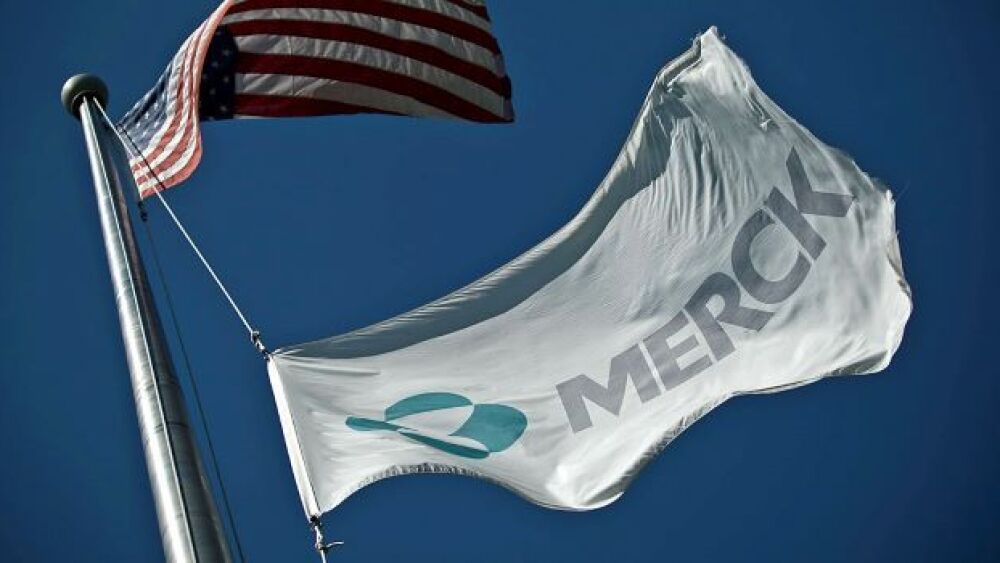Absci Corporation inked a deal with Merck. Absci will leverage its Bionic Protein non-standard amino acid technology and AI-integrated Drug Creation Platform to create enzymes for Merck.
Kena Betancur/Getty Images
Vancouver, Wash.-based Absci Corporation inked a research pact with Merck. Under the deal, Absci will leverage its Bionic Protein non-standard amino acid technology and its artificial intelligence-powered integrated Drug Creation Platform to create enzymes to meet Merck’s biomanufacturing applications.
Under the terms of the agreement, Absci is eligible for up to $610 million in upfront fees and milestone payments for three targets. In addition, they are up for research funding and tiered royalties on any sales that come out of the partnership.
“We are very pleased to establish this collaboration with Merck and to be working with its world-class research organization to generate novel enzymes,” said Sean McClain, founder and chief executive officer of Absci. “We look forward to applying our AI-driven platform to create new biological candidates with the potential to meaningfully improve the lives of patients.”
In February 2021, Merck Global Health Innovation Fund (Merck GHI) made a strategic equity investment of about $5 million into Absci. At the time, they reported that the partnership aligned with AbSci’s R&D activities, which had four areas of focus: the Denovium Engine deep-learning AI platform, the ongoing expansion of core discovery capabilities including non-standard amino acid technologies, Absci’s Protein Printing platform technology that allows for de novo biological drug creation in a short period of time, and its scaffold-agnostic screening capabilities.
During the year, Absci also completed the acquisition of Totient, a company that focuses on identifying and developing novel antibodies. At that time, in June 2021, Totient had reconstructed more than 4,500 antibodies from more than 50,000 patients and had “de-orphaned a collection of promising antibodies by identifying and validating their target antigens.”
In July, Absci announced its initial public offering (IPO) and plans to raise $200 million. It trades on the Nasdaq Global Select Market under the ticker symbol “ABSI.” It’s been a roller-coaster ride ever since. It debuted at $16 per share, rocketed briefly to $31 per share in the summer, but is now trading around $6.14 per share, although it popped 45.3% at the news of the Merck pact.
And in October 2021, Absci entered a discovery collaboration with Cambridge, Mass.-based EQRX. The partnership leverages Absci’s Drug Creation technology with EQRx’s clinical development experience and commercial expertise. They are working on next-generation, protein-based therapeutics at more affordable costs for patients. Their work is on multiple therapeutic areas, including oncology and immunology.
Although it has not reported its full-year 2021 financials, its third-quarter report on November 9, 2021, described revenue of $1.5 million for the quarter with research and development expenses of $10.7 million, and selling, general, and administrative expenses of $9.7 million. This came to a net loss of $23.6 million for the quarter. Cash and cash equivalents at that time were $279.3 million, although, with the Merck deal, it’s probably higher now or soon will be.
Of the new deal, Dr. Fiona Marshall, senior vice president and head of Discovery, Preclinical and Translation Medicine for Merck Research Laboratories, stated, “At Merck, we are continually evaluating new ways to build, expand and refine our biologics capabilities. Absci’s platform offers a compelling opportunity to design new biologic candidates and explore the expression of complex proteins.”





